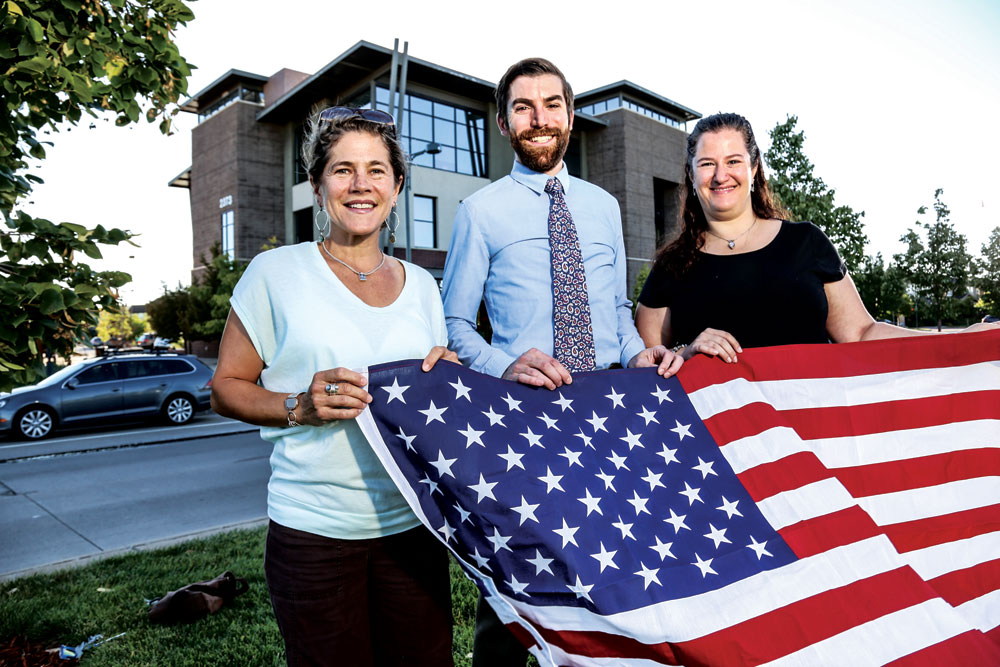
Alix Shaer, Andrew Peters and Jennifer Anderson participated in the StoryCorps project to have conversations between divided groups. The facilitated two-person conversations, which took place at Smart Space (in the background), were based on trying to understand the other person’s views.
There are debates and there are conversations. The former has a clear objective: to win. But a conversation doesn’t have to be a zero-sum game. StoryCorps, a nonprofit organization aiming to capture diverse American stories, launched its One Small Step project to start conversations between divided groups. These were conversations built on trying to understand the other side instead of falling into the same old policy-based argumentation.
Brave Coalition, a group already operating in NE Denver to raise awareness of social justice issues, linked up with StoryCorps to put Coloradans from both sides of the aisle in the same room to take part in this One Small Step initiative.
“That seemed like a really good first step to take,” says Jennifer Anderson, a One Small Step participant from Stapleton. “I very much see how divided we are and I feel like everyone in my life, whichever side of the aisle they are on, is only talking with people that agree with them.”
She says the conversation was structured so that each pair of participants, despite differences, talked more about who they were as individuals instead of digging into policy. Anderson acknowledged she might have wanted to discuss some policy but both sides were careful not to go in that direction
Alix Shaer says her experience showed the importance of having these conversations in person: “When people have a nameless and a faceless conversation and ‘conversation’… on social media …we all know it is really easy to fight back and to be fierce and to be mean and to be ugly. But it is not so easy when you are face to face with somebody.”
Shaer says that while the conversation might have been uncomfortable or awkward for some participants, accepting that uneasiness is an important step. She said participants “can feel proud of themselves in that… they got out of their comfort zone to prove that they can do something that is important and can have benefits not only for him or herself but for others.”
While on an individual level, One Small Step engaged pairs in civil conversation, Anderson and Shaer express frustration with political discussion on the national scene. Andy Peters, a Park Hill resident and One Small Step participant, said he wasn’t overly hopeful on a national level either, but took some lessons away from the initiative locally.
“It doesn’t have to be a question about big political ideologies, but just people you wouldn’t normally associate with,” says Peters. Peters doesn’t believe the political gridlock and debate on the national stage will end soon. But, he says, after the One Small Step experience, he now thinks more about conversations across dividing lines locally.
“This is an opportunity to have conversations with people who are different—some people who live on the other side of Quebec, or north of I-70,” says Peters “I think of Stapleton being a very different place and a very different people, as a person living in north Park Hill. That’s probably not actually the case. We are probably not actually that different, but it’s funny to think about the neighborhoods at a local level dividing us. And people forget—we are all Denverites, we are all Coloradans.”



0 Comments